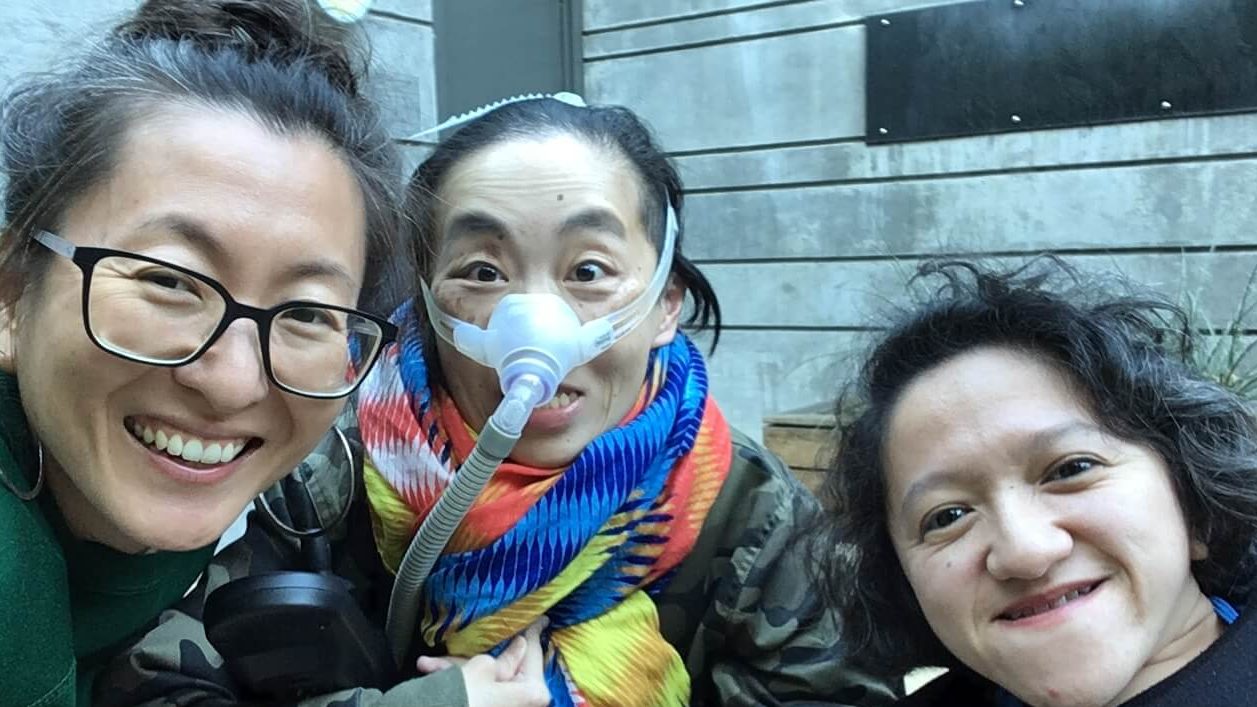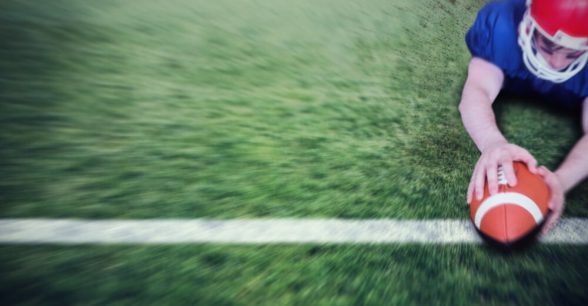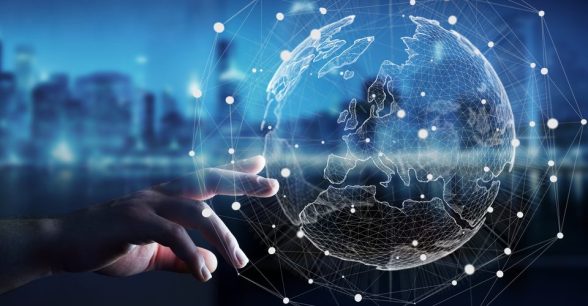On Valentine’s Day, Let’s Recognize Why #AccessIsLove
Roses, chocolates, galentines…there is a lot of emphasis on love for people in our personal lives this time of year. I could cry into my glass of rosé over the lack of romance in my life but instead, I’m going to send this valentine to the communities I’m a part of and share how their love sustains me.
I spent much of my childhood and young adulthood finding myself and community. I didn’t have the words or concepts such as “ableism” or “intersectionality” that helped shape me into who I am today. Disability pride and identity took a long time for me to develop and the process accelerated once I started reaching out to other disabled people. They didn’t have to look exactly like me or become my best friend, but I received a glimmer of recognition, the ‘Yeah, I got you’ understanding of our lived experiences that kept me going.
When I first moved to the San Francisco Bay Area 22 years ago, I felt like a Midwestern suburban mouse arriving at the epicenter of crip culture. Disabled women and disabled people of color in particular embraced me, sharing their lives, time, and culture with me. My self-education grew as I learned about disability justice and connected with people online beyond the Bay Area bubble.
As I began to embrace and accept myself, I had to acknowledge the messiness, shame, and internalized ableism that will always be a part of me. It is thanks to the love and generosity of disabled people that I have opened up to new ways of being, thinking, and moving in the world. Individual acts of love and kindness became part of a larger collective force holding everyone together with bonds of interdependence.
Every community, big or small, has conflict, drama, and a whole lot of dysfunction. Every community also has a reservoir of intergenerational wisdom, energy, and love that has the power to build, create, and mobilize for change. As a member of multiple communities, I love them all because they anchor me while providing freedom to splash around with joy unapologetically, grow, and carve out new spaces in collaboration with others.
Last fall, after years of friendship, I got to spend time in person with two friends of mine, Mia Mingus and Sandy Ho. We talked about Mia’s keynote address at the 2018 Disability Intersectionality Summit (an event led and organized by Sandy) called “Disability Justice is Simply Another Term for Love.” This quote from Mia resonated with me deeply:
“I would argue that ‘disability justice’ is simply another term for love. And so is ‘solidarity,’ ‘access,’ and ‘access intimacy.’ I would argue that our work for liberation is simply a practice of love—one of the deepest and most profound there is. And the creation of this space is an act of love.”
Magic happens when you get brilliant disabled people together. During our conversation about how we can advance these ideas in a creative and fun way, a new project was born: #AccessIsLove. Created by Mia, Sandy, and myself, we launched a campaign with the following goals:
- Expand the idea of access beyond compliance and the disability rights framework
- Encourage people to incorporate accessibility in their everyday practices and lives
- Show solidarity and give support to activists across movements outside and within the disability community
We created a list of resources on accessibility and disability justice and 10 steps people can take to start thinking and acting intentionally about access. We also designed some merchandise to raise money for a different advocacy group every two months to give material support and show solidarity. From now until the end of March 2019, all proceeds from our online store will go to the House of GG, the first national retreat site, educational, and historical center solely dedicated to transgender and gender nonconforming people in the US.
With all of this in mind, on this Valentine’s Day I invite you to think about these questions:
- Who do you love? Who are your people?
- How do you show love for your communities?
- What does it mean to show up for others?
- In what ways is access, solidarity, and disability justice a form of love?
Who we love and how we love is inherently political. We declare our kinship through our actions and words in both explicit and subtle ways. It’s not easy or simple, but I hope everyone will find their people and ways to express love for their communities each and every day.
About Rooted In Rights
Rooted in Rights exists to amplify the perspectives of the disability community. Blog posts and storyteller videos that we publish and content we re-share on social media do not necessarily reflect the opinions or values of Rooted in Rights nor indicate an endorsement of a program or service by Rooted in Rights. We respect and aim to reflect the diversity of opinions and experiences of the disability community. Rooted in Rights seeks to highlight discussions, not direct them. Learn more about Rooted In Rights



